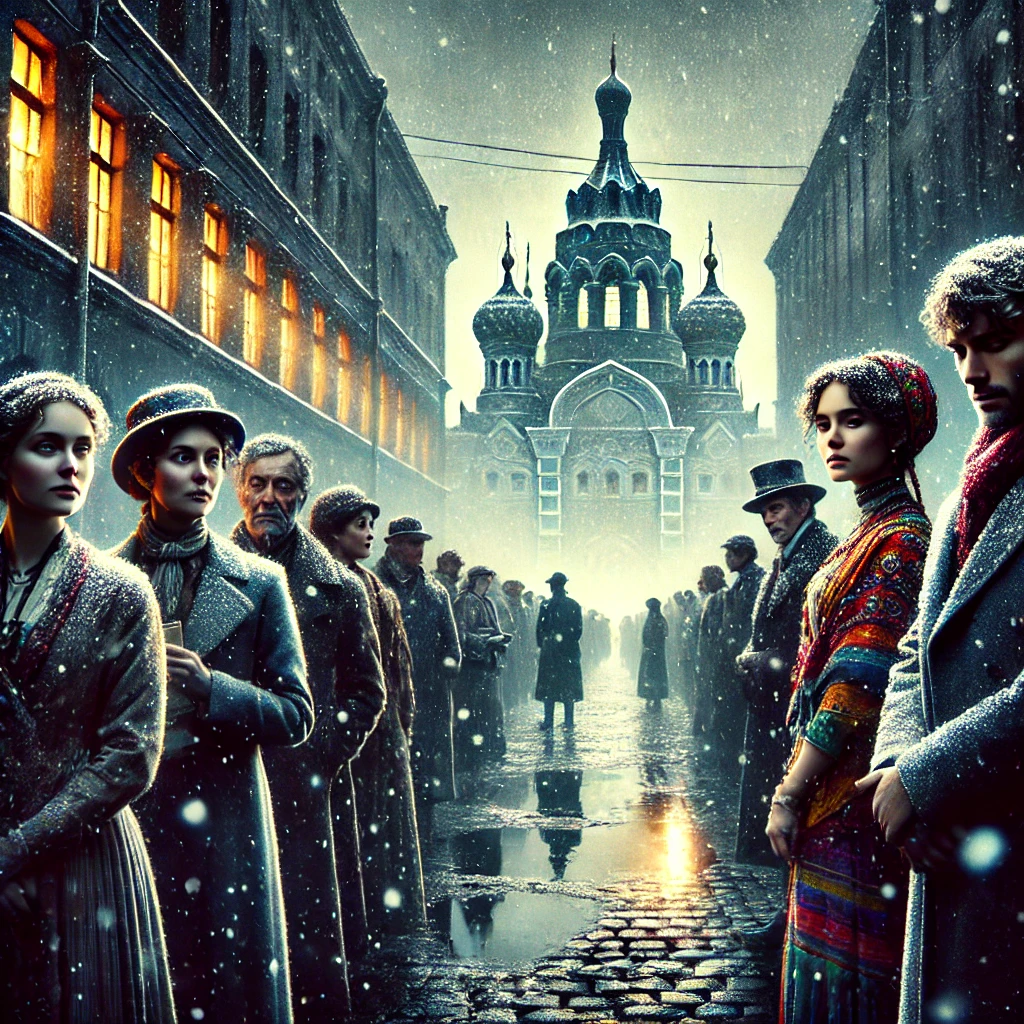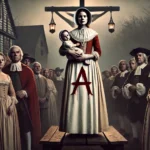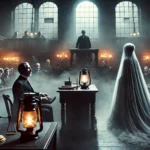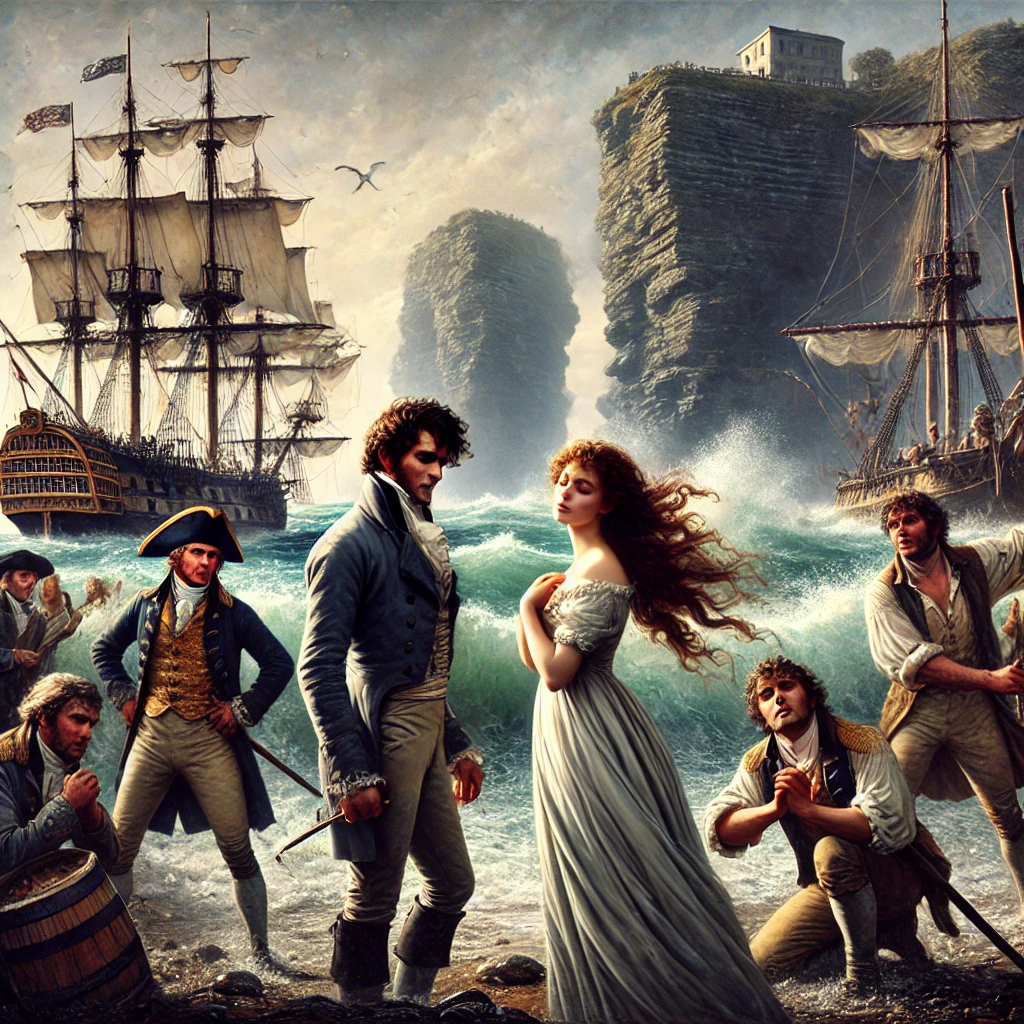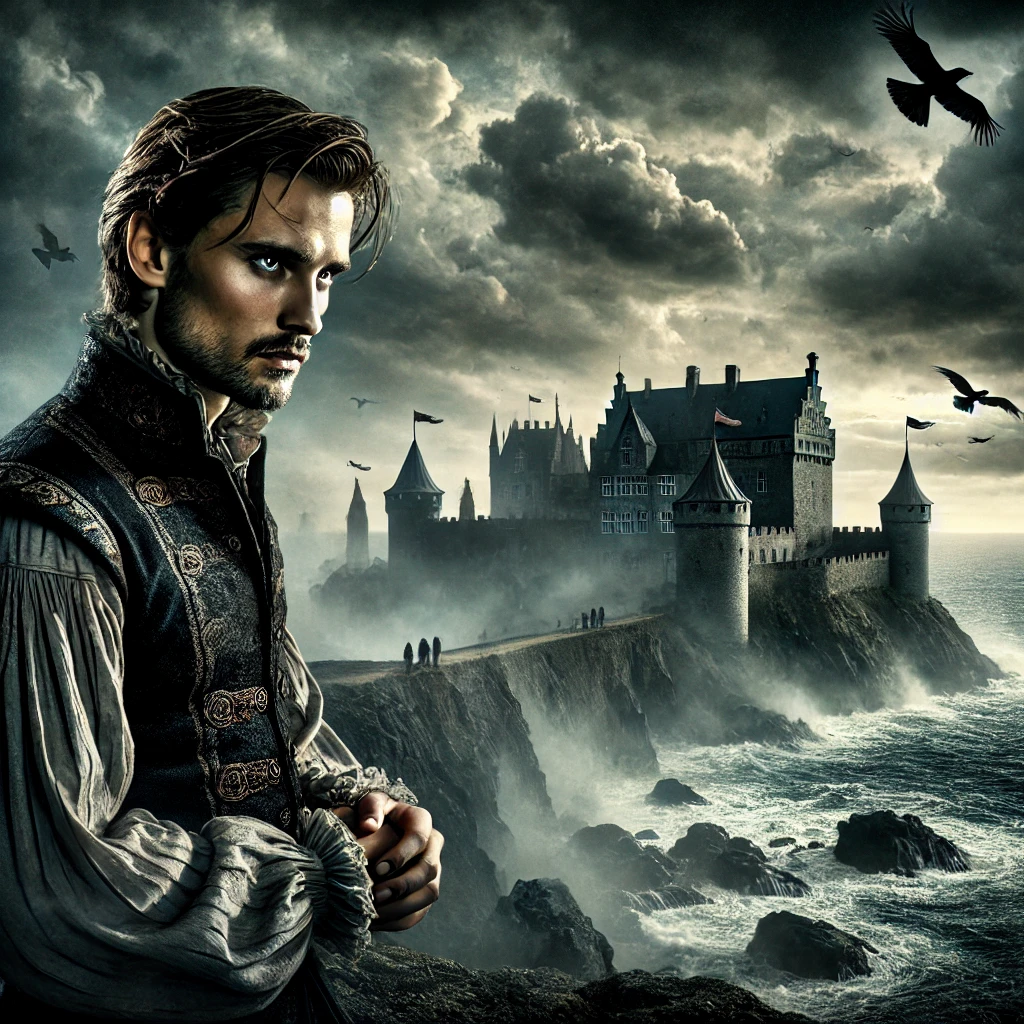The Secret City by Sir Hugh Walpole, published in 1919, is a literary novel set against the backdrop of World War I and the Russian Revolution. Walpole explores the lives of expatriates and Russians living in Petrograd (now St. Petersburg) during the turbulent years leading up to the Bolshevik Revolution. The novel captures the psychological and emotional turmoil of individuals as they navigate love, loyalty, betrayal, and the uncertain future of Russia.
Plot Summary
The journey from England to Petrograd was long, and by the time Henry Bohun and Jerry Lawrence arrived, they had grown tired of each other. Bohun, at twenty-three, was brimming with youthful confidence, convinced of his success and eager to dive into Russia’s mystique. Lawrence, older and gruffer, was a seasoned soldier with little patience for Bohun’s idealism. The two men, though polite, had little in common. They parted ways at the station, each with his own expectations for what awaited them in the city.
Bohun, with his romantic notions of Russia, found himself in the home of Nicolai Markovitch and his wife Vera. Nicolai was a nervous man, always on the brink of some new invention that promised success but never delivered. His latest obsession was an ink that could revolutionize the world, or so he believed. His wife Vera, however, was the true strength of the household. Tall, graceful, and composed, she carried the burdens of their failing finances and the emotional strain of her husband’s inadequacies. There was something almost heroic about Vera, as if she alone kept the crumbling world around her from collapsing entirely.
Vera’s sister Nina, a lively and impulsive young woman, brought an air of frivolity to the house. With her constant laughter, bright colors, and flirtations, Nina was a stark contrast to Vera’s quiet dignity. Bohun quickly fell under Nina’s spell, enchanted by her carefree spirit. Yet beneath her playful exterior, Nina harbored her own longings, flitting between men’s affections without ever settling. Boris Grogoff, a frequent visitor to the household, was one such man. A passionate socialist, Grogoff was consumed by revolutionary ideas and sought Nina’s attention with the same fervor that he brought to his political beliefs.
As winter descended on Petrograd, so too did a sense of foreboding. The city, once vibrant, now felt suffocated by the weight of war and the impending revolution. Bread lines stretched through the streets, and the air was thick with tension. Petrograd’s beauty, which Bohun had imagined with such romantic fervor, was overshadowed by the grim reality of life in a city on the verge of collapse. Lawrence, who had been stationed elsewhere in the city, wandered the streets with a practical detachment that Bohun could not understand. Where Bohun saw the soul of Russia in its people, Lawrence saw only disorder and decay.
The tension within the Markovitch household mirrored the city’s growing unrest. Nicolai’s failures weighed heavily on him, and he withdrew further into his world of inventions. His obsession with his ink experiment was both a distraction and a symbol of his growing disconnect from reality. Vera, ever the steady force, grew weary of holding the family together. Though Bohun admired her deeply, his affection for Nina clouded his vision, and he failed to see the emotional burden Vera carried.
As the revolution in Russia gathered momentum, Boris Grogoff became more vocal about his beliefs. He was impatient, driven by a vision of a new Russia free from the old regime. His passion for change brought him into conflict with Nicolai, whose frustrations boiled over as he struggled to assert himself in a household where his voice was increasingly irrelevant. Grogoff’s enthusiasm for revolution was infectious, but it also carried a dangerous edge, as the city grew more volatile by the day.
Nina, meanwhile, continued to play with Bohun’s affections. She enjoyed the attention of both Bohun and Grogoff, but her feelings remained as fleeting as her laughter. Bohun, smitten and inexperienced in matters of the heart, found himself caught in a web of emotions he did not fully understand. He was drawn to Nina’s carefree nature, yet something about her unpredictability unsettled him. Grogoff, for his part, saw Bohun as a rival, but his mind was too preoccupied with the revolution to fully engage in the rivalry.
As the unrest in Petrograd escalated, so did the strain in the Markovitch home. Nicolai’s failures became harder to ignore, and the distance between him and Vera grew. Vera, who had always been the family’s pillar, began to show signs of wear. Her relationship with Bohun became more complicated as he grew closer to Nina. Though Vera admired Bohun’s youthful idealism, she knew that he was hopelessly naive about the realities of Russia. Beneath her stoic exterior, she harbored her own unspoken desires, though she remained bound by duty and loyalty to her husband.
The revolution finally erupted, sweeping through the streets of Petrograd with a fury that no one had anticipated. Grogoff, once a mere advocate for change, now found himself caught in the maelstrom of violence and chaos. His fiery rhetoric, which had once inspired those around him, now seemed empty in the face of the brutal reality of revolution. The streets were filled with rioters, and the once peaceful city was now a battleground. Bohun, caught in the middle of it all, was forced to confront the harsh truth about the country he had so idealized.
Nicolai, unable to cope with the collapse of his dreams, became increasingly erratic. His obsession with his ink experiment seemed absurd in the face of the revolution, and yet he clung to it as though it were his last hope. Vera, now fully aware of the fragility of her marriage, struggled to protect her husband from himself. The city’s turmoil mirrored the crumbling state of their relationship, and Vera was left to pick up the pieces of a life that seemed to be falling apart around her.
In the end, the revolution changed everything. Petrograd, once a city of grandeur, was now in ruins. Bohun, having lost his illusions, departed Russia with a heavy heart. The relationships he had formed during his time in Petrograd—his affection for Nina, his admiration for Vera, his rivalry with Grogoff—were now memories, distant and fading. The city had consumed them all, leaving behind only fragments of what had once been.
Main Characters
Vera Michailovna: A strong, confident woman married to the anxious inventor Nicolai Markovitch. Vera is intelligent and perceptive, often seen as the emotional anchor of her family. Her character embodies both strength and vulnerability, and she becomes a focal point in the relationships around her.
Nina Michailovna: Vera’s younger sister, Nina, is lively and childish. She brings color and energy to the narrative, often wearing flamboyant clothes and acting with impulsive behavior. Her character contrasts sharply with her sister’s composed demeanor.
Nicolai Markovitch: Vera’s husband, a pale, thin, and troubled inventor whose attempts at success are often futile. He is financially dependent on Vera and is a source of tension within the household. His character represents the decline and frustration of a man unable to reconcile his ambitions with reality.
Henry Bohun: A young, idealistic Englishman who travels to Russia on a diplomatic mission. He is romantic and naive, seeing Russia through a sentimental lens, only to be confronted with harsh realities. His personal growth forms a crucial part of the narrative.
Jerry Lawrence: A former football captain and soldier who is now sent to Russia by the British Military Mission. His practical, grounded nature contrasts with Bohun’s romanticism, and he represents the disillusioned expatriate trying to make sense of Russia’s chaotic state.
Boris Grogoff: A fiery young socialist and frequent visitor to the Markovitch household. He is passionate about revolution and represents the radical spirit of change in Russia. His dynamic personality brings both tension and excitement to the story.
Theme
Disillusionment with War and Revolution: Many characters, particularly the English expatriates, arrive in Russia with idealistic views about revolution and war. Their gradual disillusionment mirrors the broader sense of loss and despair prevalent in Russia during the period.
Cultural Clash: The novel explores the profound differences between Russian and English perspectives, especially through Bohun, who views Russia with a romanticized lens. The misunderstandings and frustrations that arise highlight the theme of cultural alienation.
Psychological Turmoil: Walpole delves into the inner struggles of his characters, particularly their anxieties and fears in the face of political upheaval. The constant tension in the air mirrors the characters’ mental and emotional states, leading to a sense of dread and uncertainty.
Isolation and Loneliness: Many characters experience deep emotional and physical isolation, whether as expatriates far from home or as Russians trapped in a country on the brink of collapse. This theme is expressed both in personal relationships and in the larger social context.
Writing Style and Tone
Sir Hugh Walpole’s writing in The Secret City is rich in psychological depth and vivid descriptions. He excels at creating atmosphere, especially the gloomy, oppressive ambiance of Petrograd during a time of great social and political upheaval. Walpole’s prose is often introspective, delving into the characters’ thoughts and emotions with subtlety. His descriptions of the city’s streets, the cold, and the looming sense of catastrophe are almost cinematic, adding to the tension and mood of the novel.
The tone of the novel is contemplative and often melancholic. There is a sense of impending doom throughout the story, which is reflected in the personal struggles of the characters. Walpole manages to weave moments of tenderness and beauty amid the chaos, but the overall tone remains one of unease and anticipation. The writing is lyrical, with a focus on creating a deep emotional connection between the reader and the characters’ internal landscapes.
We hope this summary has sparked your interest and would appreciate you following Celsius 233 on social media:
There’s a treasure trove of other fascinating book summaries waiting for you. Check out our collection of stories that inspire, thrill, and provoke thought, just like this one by checking out the Book Shelf or the Library
Remember, while our summaries capture the essence, they can never replace the full experience of reading the book. If this summary intrigued you, consider diving into the complete story – buy the book and immerse yourself in the author’s original work.
If you want to request a book summary, click here.
When Saurabh is not working/watching football/reading books/traveling, you can reach him via Twitter/X, LinkedIn, or Threads
Restart reading!


